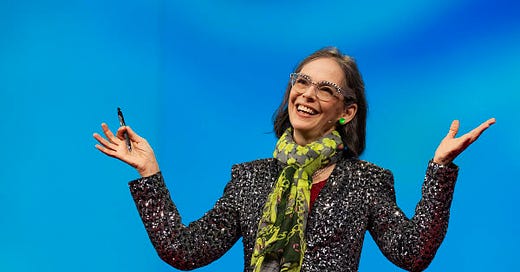When Lenore Skenazy’s son was 9, he asked her and her husband if they would take him somewhere new and let him find his own way home by subway.
What resulted was a column in the New York Sun titled Why I Let My 9-Year-Old Ride the Subway Alone, and as she recounts in her forthcoming Ted talk, two days later, she found herself on The Today Show, MSNBC, Fox News, and NPR — having been labeled “America’s Worst Mom.”
When Skenazy was a child, “there were three worlds that were perfectly balanced.” The kid world, the adult world, and the family world. “But now,” she laments, “they’ve all been sort of mashed up together.” Today, with the three worlds out of balance, the result is both parental anxiety and what Skenazy calls the “adult takeover of childhood.”
As I write in Psychology Today, now, the majority of children between 9 and 11 are not allowed to stay at home alone for even 30-60 minutes, walk or bike alone to a friend’s house, or play unsupervised at a park with a friend.
Lenore, with the help of her nonprofit, LetGrow, has proposed the Reasonable Childhood Independence Law to give back the right for children to play freely. The law clarifies that when children are allowed to safely participate in appropriate unsupervised activities, it does not constitute neglect.
As social psychologist Jonathan Haidt and I wrote several years ago, “free play in which kids work out their own rules of engagement, take small risks, and learn to master small dangers (such as having a snowball fight) turns out to be crucial for the development of adult social and even physical competence. Depriving them of free play stunts their social-emotional growth.”
So far, the law has been passed in nine states.
In Israel in February and March, I caught up with historian Gadi Taub and Dan Schueftan, both of whom I interviewed last year for Quillette. You can watch last year’s interviews with Dan here and with Gadi here (part 1) and here (part 2). Below are their more recent interviews.
More to come.




